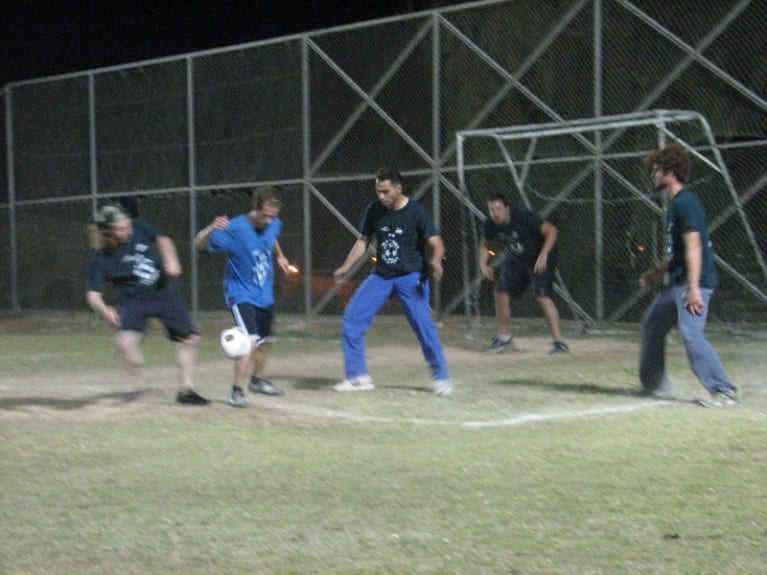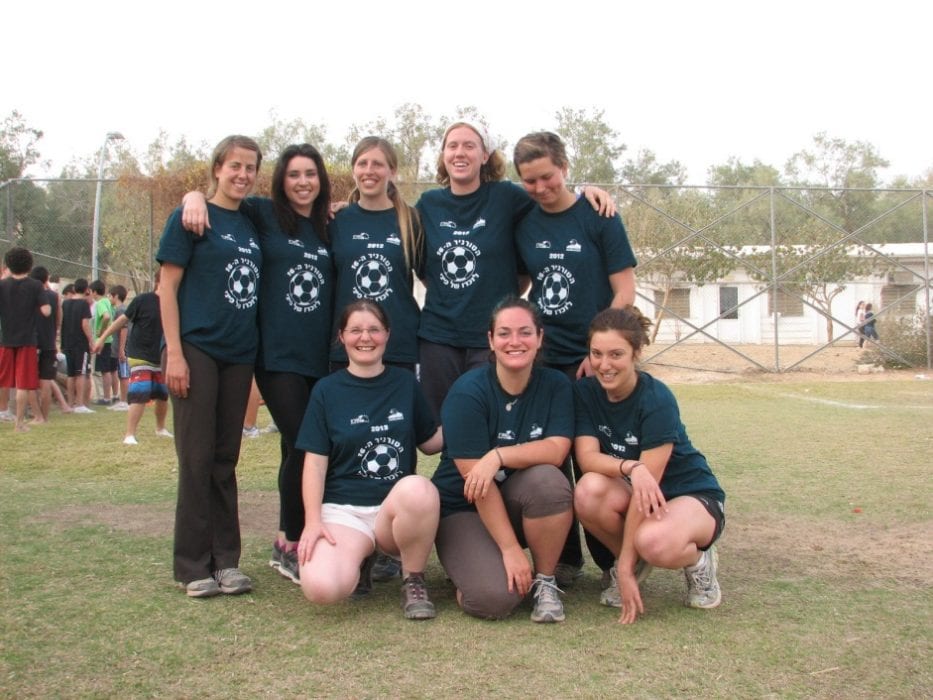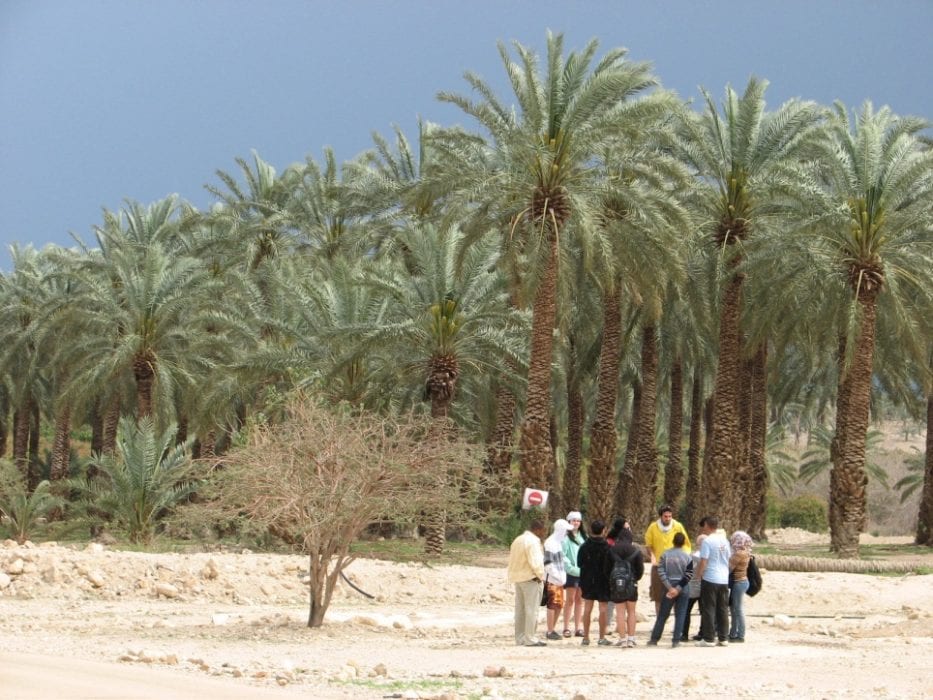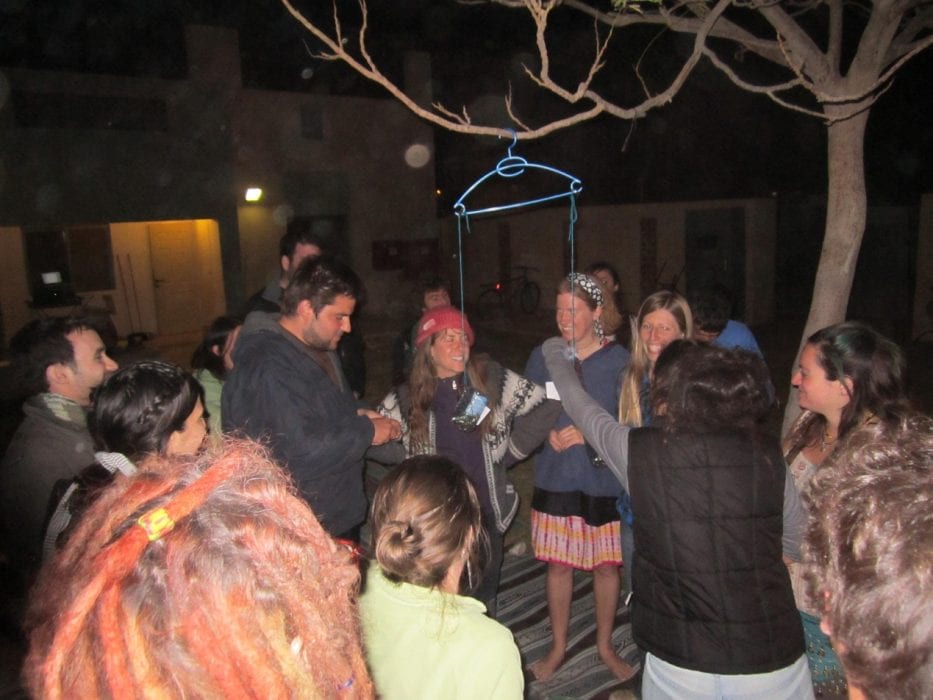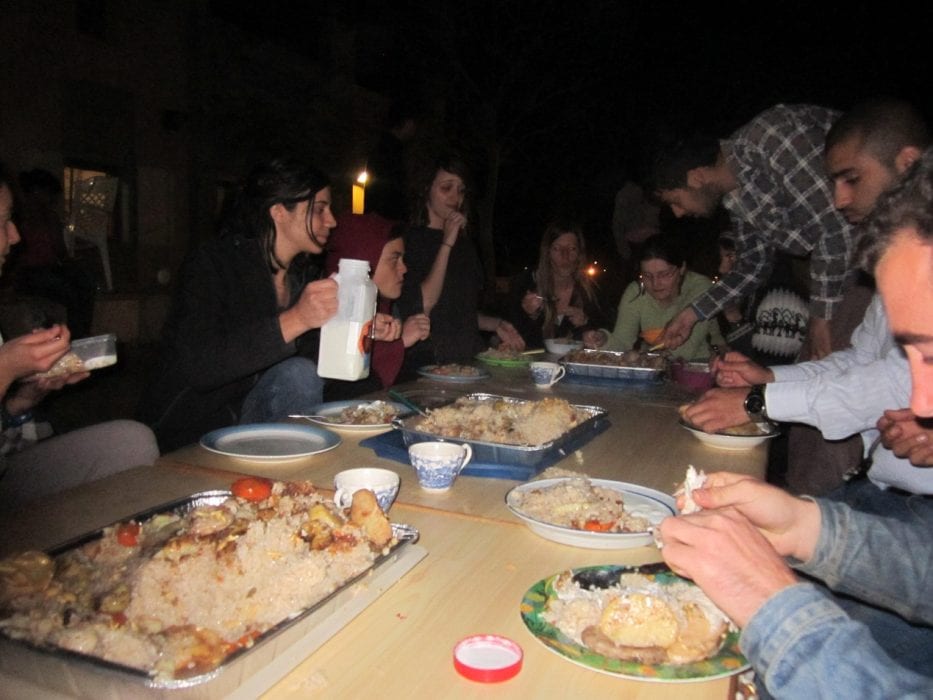Twenty-nine students and one professor from Yale University came to the Arava Institute for a two day visit. As part of their MBA program, all first-year students are required to go on a trip to explore business ventures in other parts of the world. The students’ main focus was on renewable energy and innovation. The Yalies had a busy schedule during their time in southern Israel that included a visit to Ketura’s solar field, the Arava Institute’s Research and Visitors Park, as well as meeting with Arava Institute students. According to the Yale students, meeting with their peers at the Arava Institute was their favorite part of the trip – they were inspired by the personal narratives and how their experience at the Arava Institute has impacted their lives and helped to shape who they are today.
We were proud to have the Arava Institute students represent us at the annual regional football tournament in memory of Kibbutz Ketura member Pini Lutman. AIES had both a women and men’s team compete in the tournament, and while neither team made it to the finals, both teams played hard and had fun. In addition, we had the loudest cheering section at the tournament with help from two drummers and creative chants!
The Youth Environmental Education and Peace Initiative (YEEPI) is an alumni project that helps Jewish and Arab high school students break their preconceived 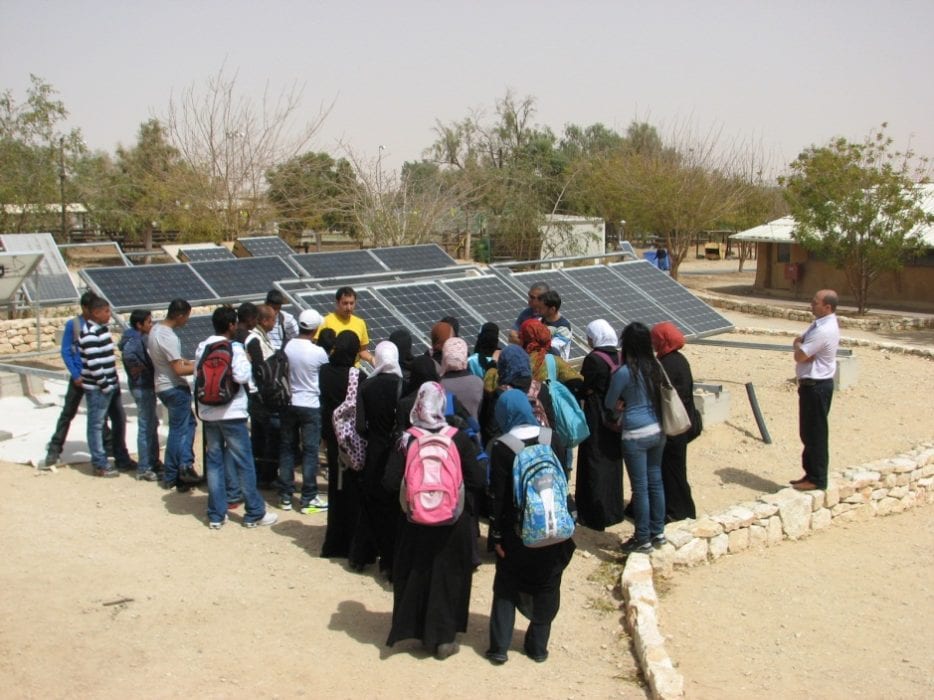
Under the auspices of the Dead Sea and Arava Science Center, seven alumni of the Arava Institute coordinated and facilitated an intercultural exchange program between Israeli and Jordanian high-school students from March 15th – March 17th. The program, focusing on science education, brought together 17 Jordanian students and 18 Israeli students at Kibbutz Ein Gedi to get to know each other and learn about the environment surrounding the Dead Sea. Many families were initially fearful of sending their children to spend a weekend with “the other,” and it was interesting to see how relations between students changed during this time. After spending three days together, the students were sad when it came time to say their goodbyes and part ways. Next month, as part of the program, the Israeli students will travel to Safi, the Jordanian village that is directly across the Dead Sea from Kibbutz Ein Gedi.
Clive Lipchin, Uri Nusinow, Gigi Strom, Shira Kronik, Hanan Ginat and Yair Wahle travelled to Jordan this week for the “Transbasin (Transboundary Water Basin Management Program) Kick Off” in Amman. Internationals from Europe and the Middle East came to this event in order to discuss this European Union funded program that will provide a scientific forum to study conflict and cooperation within the Jordan River basin and the Guadiana River basin. By examining areas facing both water scarcity and fragile political relations, this program aims to identify the principles and mechanisms that promote and hinder cooperation in terms of river basin management. The Guadiana River basin is shared by Portugal and Spain, while the Jordan River basin is shared by Jordan, Israel and the Palestinian Authority. According to Shira, the highlight of the trip was spending time with and getting to know our Jordanian and Palestinian colleagues, and she is looking forward to working together on this exciting project.
On Monday, March 19th, a unique event took place on the AIES campus. The goal of the student run “Fun Raising Fund Razor” was to raise enough money to fund transportation for Arava Institute students to volunteer with Sudanese refugee children in Eilat each week. The Sudanese project was started by AIES students two years ago and after a hiatus last semester is back up and running with many students interested in getting involved. The organizers of the Fund Razor enlisted the students and staff of AIES to offer goods and services for others to pay a few shekels for. Up for grabs at the event included vouchers for services such as massages, apple pie, serenades, hand-knitted items, custom-made earrings and bracelets, caricatures, clothes mending, crochet lessons, and your own personal waiter in the kibbutz dining hall. Other students contributed by making pita on the fire for everyone to enjoy. The main attractions of the night were a dance-off and the event’s namesake: one of our female students put out two competing donation jars – “TO SHAVE” or “NOT TO SHAVE” her head…and now she has a new haircut! The Fund Razor was a unique event for a great cause, and the students successfully raised enough money to fund their project for the rest of the semester! Congratulations to everyone involved!
Arabic dinner night was held on Wednesday March 21st. Four of our students made the traditional dish “maqlobeh” (a mixture of chicken, rice, and vegetables) and served it on the campus lawn. It was enjoyed immensely by all in attendance!
That’s all for this week! Thanks to Shannon Wade and Brian Hoefgen for their updates and photos.
Miriam Sharton, Director

